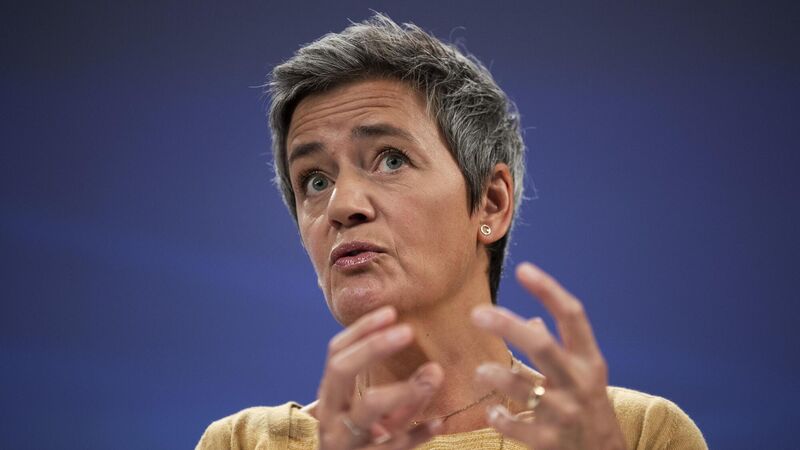John Whelan: EU Green Deal could squeeze Ireland out of sustainability race

“European countries are not equal when it comes to state aid,” said EU competition chief Margrethe Vestager. Picture: PA
Irish firms may get squeezed out of big projects as EU leaders ponder opening up state-aid rules to speed up the international race for green goods and services.
Confronted by what many EU countries see as unfair competition from the US's vast green tech investment plan, European leaders at their most recent summit in Brussels reviewed proposals for releasing new funds and dropping long standing restrictions on state aid as a means of countering the US plan.















